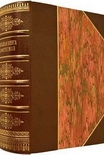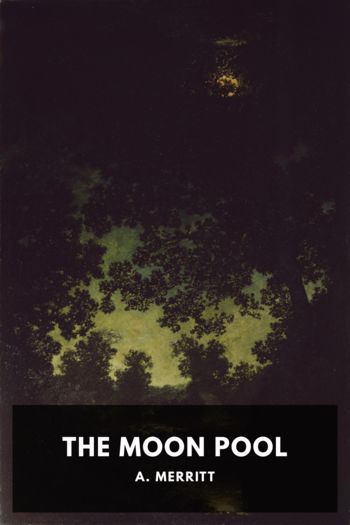How to Become a Witch, Amber K. [new books to read .txt] 📗

- Author: Amber K.
Book online «How to Become a Witch, Amber K. [new books to read .txt] 📗». Author Amber K.
You are finding time and making the effort to re-create yourself daily. You are worth it.
Deepening Your Practice
Exercises in Creating a Daily Practice
Try the activities suggested in this chapter for a week each. Make notes in your Book of Shadows as to how each one felt and how it influenced your day.
Ask yourself if there is anything that you already do every day that could be done in a more mindful or spiritual or satisfying way.
Ask your friends if they have any daily practice to help them face the day or bring it to closure. You may get some good ideas.
Explore the idea of a combination of brief activities that could be done daily to strengthen and focus you physically, mentally, energetically, emotionally, and spiritually. (A single activity might accomplish more than one of these.) Try a different combination each day for a week, and choose the one you like best.
Chapter 7
Are You a Good Witch or a Bad Witch?
The Rules of Witchcraft
An ye harm none, do as ye will,
Touching magick, wielding power,
Heal always, never kill,
I am a Witch at every hour.
Wiccan ethics can be summed up in eight words:
An ye harm none, do as ye will.
This is the Wiccan Rede. The old Anglo-Saxon word rede means “counsel” or “advice.” Though it is short, the Rede contains much more than meets the eye. Let’s begin with a rough translation: “As long as you harm no one, act as your true will leads you.”
One word at a time:
An = An archaic word meaning “if” or “as long as.”
Ye = The individual Witch, you.
Harm = Anything that causes lasting damage.
None = No one, yourself included.
Do = Act. The Rede is not concerned with thoughts, attitudes, or beliefs except as they influence our actions.
As = In some versions, the word “what” is substituted.
Ye = You. The responsibility for how you act is yours alone.
Will = Your true will, the part of you that flows from your higher self and has a deep understanding of right and wrong. “Will” never means just “want” or a whim.
No one can follow the Rede perfectly. On some level, we do harm just by living: we eat plants and perhaps animals, we make waste, we disturb habitat by building houses. But we are allowed to survive—the aim here is to minimize harm to anyone, including ourselves.
Lately it has become crystal clear that humans are doing immense damage to the environment: harming the planet we live on, and the other residents, in ways that are not necessary to our survival. As a species, we strip-mine the land, release poisons into the air and water, and cause other species to become extinct.
Fortunately, many people are becoming aware of this and taking action. We are finding ways to live with less damage to the earth and its life. Recycling, solar and wind power, organic farming, habitat conservation and restoration, eating locally grown foods—all are ways to survive with less harm.
Ultimately, who decides what “harm” is? Well, for the environment, Mother Earth speaks clearly enough to us; we just need to pay attention. The disruption of local ecologies and the dwindling of other life forms is a clear signal that we’re doing harm. In human society, we know that stealing, assault, and murder almost always constitute harm. Beyond that, Witches generally let each individual decide what “harm” means to them.
The next part of the Rede that causes confusion is trying to define “none” in relation to harm. In order to survive, to eat, most people harm something. Are you willing to eat sentient animals, like dolphins and octopi? What about cattle and pigs? Should you exclude all animals from your diet? Can you ethically eat vegetables that have been pulled from the earth or cut from their roots? Depending on where you draw the line, you may choose to be an omnivore, a fish and poultry eater, a vegetarian, a vegan, or a fruitarian. The choice is yours, and your conscience is the only authority you must answer to—but be clear about why you eat the things you do.
Aside from the definitions of “harm” and “none,” the other challenging part of the Rede concerns your will. How can we know what our true will is? Well, first of all, our true will cannot cause unnecessary harm to ourselves or others, or else the Rede would contradict itself. Secondly, it is a question of trust. Do you trust yourself to know the difference between right and wrong—not just in your head (because our minds can rationalize all kinds of nonsense), but in your heart and spirit?
Many people don’t even try to figure out what’s right and wrong. They simply turn to an authority figure, like the law or the church, and say, “Tell me the rules.” They assume that as long as they follow the Ten Commandments or the statutes of their community, they’re living a moral life.
That works—sometimes. But what if you are a German citizen in 1940, and the law is controlled by the Nazi Party? What if you are a good Christian during the Inquisition, and the church says to burn the heretics?
Either you trust yourself to know what is right or you trust someone else. For a Witch, the authority is always your true will, which always reflects the will of nature and the gods.
Naturally enough, people make mistakes—and not only Nazis or Inquisitors. You might want something very badly for purely selfish reasons and persuade yourself that it’s your true will. Fortunately, there are some checks and balances:
The first part of the Rede: harm none. If someone would be harmed, and it’s not preventing a greater harm, the proposed action is not your true will.
Your community. If the people you love and respect are opposed to your action, you need to rethink it. Often several heads are better than one.
Your elders. Who are your





Comments (0)